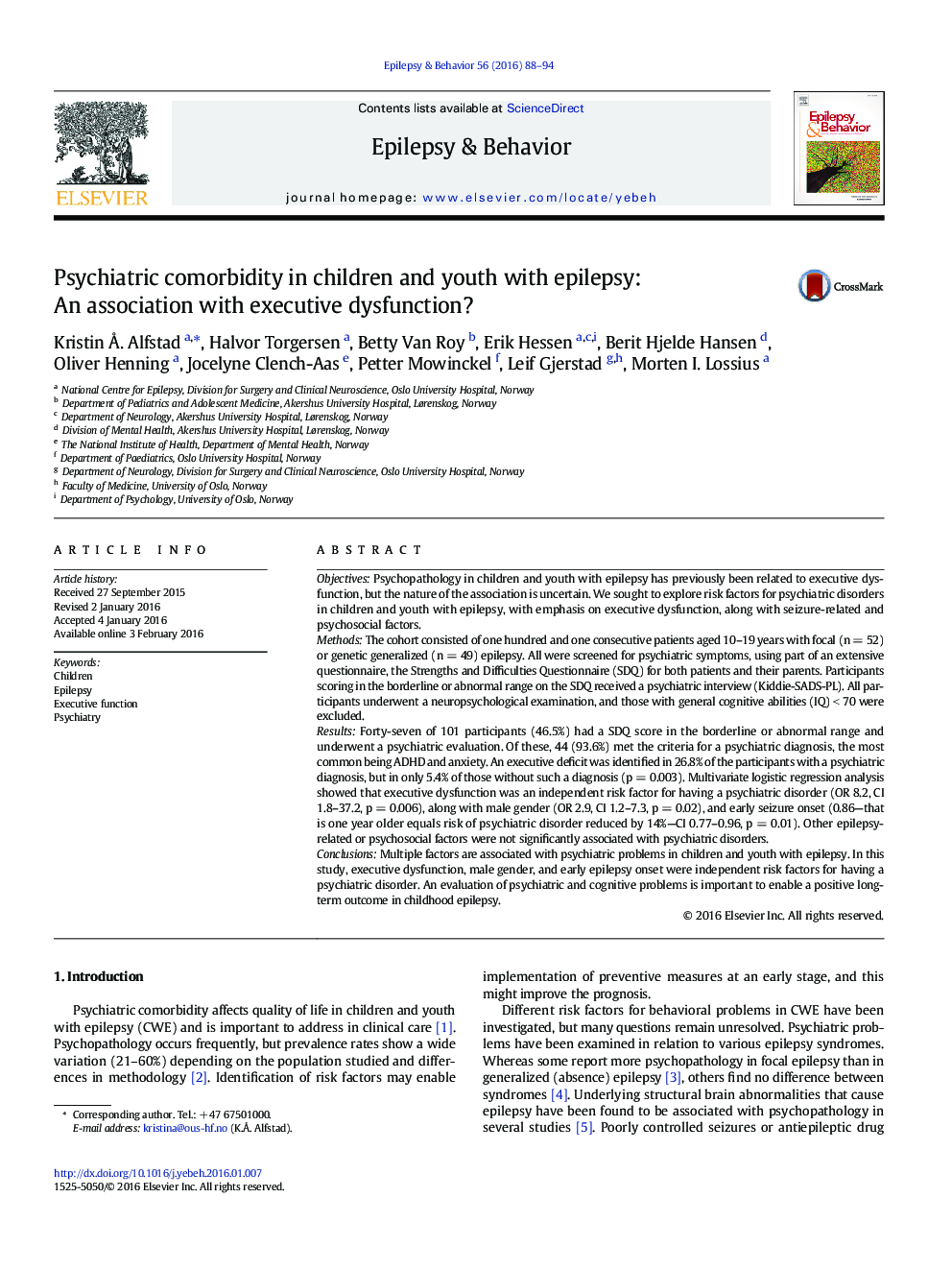| Article ID | Journal | Published Year | Pages | File Type |
|---|---|---|---|---|
| 6010638 | Epilepsy & Behavior | 2016 | 7 Pages |
â¢Executive dysfunction was associated with psychiatric disorders in CWE.â¢Male gender and early epilepsy debut were other risk factors for psychopathology.â¢ADHD and anxiety were the most common psychiatric diagnoses.â¢Psychiatric and cognitive problems should be screened for in CWE.
ObjectivesPsychopathology in children and youth with epilepsy has previously been related to executive dysfunction, but the nature of the association is uncertain. We sought to explore risk factors for psychiatric disorders in children and youth with epilepsy, with emphasis on executive dysfunction, along with seizure-related and psychosocial factors.MethodsThe cohort consisted of one hundred and one consecutive patients aged 10-19 years with focal (n = 52) or genetic generalized (n = 49) epilepsy. All were screened for psychiatric symptoms, using part of an extensive questionnaire, the Strengths and Difficulties Questionnaire (SDQ) for both patients and their parents. Participants scoring in the borderline or abnormal range on the SDQ received a psychiatric interview (Kiddie-SADS-PL). All participants underwent a neuropsychological examination, and those with general cognitive abilities (IQ) < 70 were excluded.ResultsForty-seven of 101 participants (46.5%) had a SDQ score in the borderline or abnormal range and underwent a psychiatric evaluation. Of these, 44 (93.6%) met the criteria for a psychiatric diagnosis, the most common being ADHD and anxiety. An executive deficit was identified in 26.8% of the participants with a psychiatric diagnosis, but in only 5.4% of those without such a diagnosis (p = 0.003). Multivariate logistic regression analysis showed that executive dysfunction was an independent risk factor for having a psychiatric disorder (OR 8.2, CI 1.8-37.2, p = 0.006), along with male gender (OR 2.9, CI 1.2-7.3, p = 0.02), and early seizure onset (0.86-that is one year older equals risk of psychiatric disorder reduced by 14%-CI 0.77-0.96, p = 0.01). Other epilepsy-related or psychosocial factors were not significantly associated with psychiatric disorders.ConclusionsMultiple factors are associated with psychiatric problems in children and youth with epilepsy. In this study, executive dysfunction, male gender, and early epilepsy onset were independent risk factors for having a psychiatric disorder. An evaluation of psychiatric and cognitive problems is important to enable a positive long-term outcome in childhood epilepsy.
